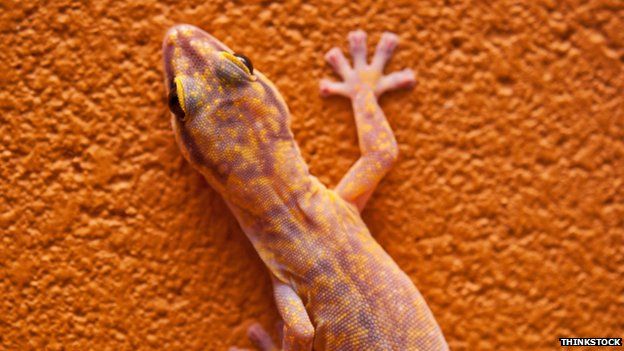Russia loses control of gecko sex experiment satellite
- Published

A Russian satellite containing geckos, fruit flies and mushrooms could plummet to earth if control is not regained, according to reports.
The engine of the Foton-M4 satellite, with several experiments on board, has stopped responding to ground control.
All other systems are intact, the Progress space centre stated, including "one-way" transmission of information.
The five geckos are in space for a study of the effect of weightlessness on their sex lives and development.
The Russian Space Agency, Roscosmos, said the six tonne satellite could continue to operate on its own "for a long time".
A space expert cited by Interfax said it could stay in space for as long as four months.
The satellite was launched on July 19 but yesterday failed to respond to a command to lift into a higher orbit.
Russian news agency ITAR-TASS reported that "specialists are restoring stable connection with Foton and are providing for fulfilment of [the] planned orbital mission program".
"The equipment which is working in automatic mode, and in particular the experiment with the geckos is working according to the programme," Oleg Voloshin from Russia's Institute of Medico-Biological Problems (IMBP) told AFP.
The two-month experiment involving the geckos included video-cameras and was a "study of the effect of microgravity on sexual behaviour, the body of adult animals and embryonic development" according to the IMBP website.
The lizard sex investigation was among several planned experiments, including other biological studies of plant seeds and Drosophila fruit flies.
There was also a special vacuum furnace designed to examine the melting and solidification of metal alloys in low-gravity conditions.
- Published16 May 2014
- Published14 May 2014